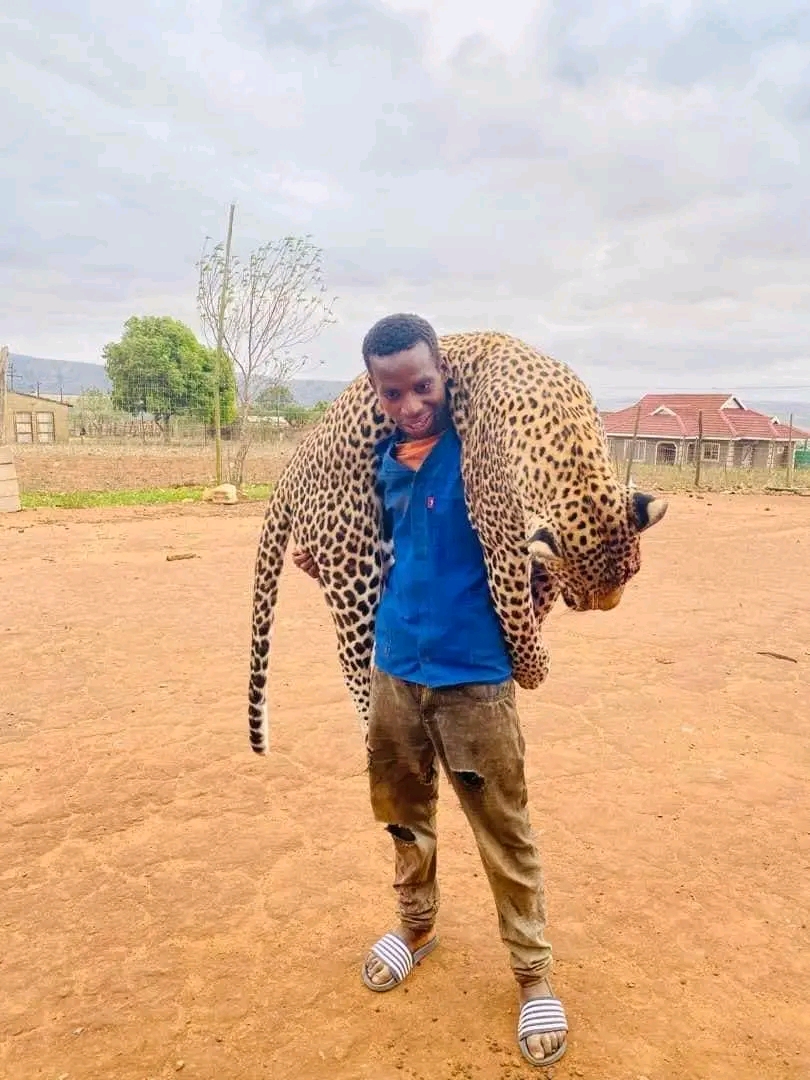
Majomela Village, Nongoma – A local resident has become the center of a heated debate in northern KwaZulu-Natal after reportedly killing a leopard, a protected species in South Africa. The incident has divided the community, with some villagers praising the man as a hero, while others, including conservationists, are demanding his arrest for what they view as an illegal act.
The incident took place in Majomela village, a rural community in Nongoma. According to reports, the leopard had been sighted multiple times near the village, raising alarm among residents who feared for their safety and that of their livestock. The unnamed man claimed that he encountered the leopard and acted in self-defense when the animal posed an immediate threat to his life. He has since received support from several villagers who believe his actions were justified.
“He saved us from a dangerous animal,” a resident told local media. “Leopards are not common here, and we were all worried about our safety. We should be thankful that he was brave enough to take action.” Many in the community see the man’s actions as courageous, particularly given the fear that had been building due to the presence of the predator.https://x.com/mdnnewss/status/1837198217185747086?s=46
Despite the local support, the man’s actions have sparked outrage among conservationists and others who argue that the killing of the leopard was unnecessary and illegal. Leopards are a protected species under South African law, and their population is considered vulnerable due to habitat loss and human-wildlife conflict. The killing of such an animal without the appropriate permits or a clear, justifiable reason is deemed a criminal offense.
Critics have called for the man to be held accountable for his actions. “He must be arrested,” stated a spokesperson for a local wildlife organization. “This is a clear violation of wildlife protection laws. We understand the fear that people have, but there are proper channels and procedures to deal with such situations. Killing a protected species is not one of them.”
The incident has drawn attention to the ongoing issue of human-wildlife conflict in rural South Africa. As human settlements expand and encroach on natural habitats, encounters with wildlife such as leopards, elephants, and lions have become more frequent. In many cases, these encounters lead to tragic outcomes for both humans and animals. Conservationists argue that better measures need to be put in place to mitigate these conflicts, such as improved fencing, community education, and more robust wildlife management strategies.
In response to the incident, local wildlife authorities have launched an investigation to determine whether the man’s actions were indeed in self-defense or if he breached any laws. They have warned that killing a protected species without a permit is a serious offense that could result in fines and imprisonment. The authorities have also urged residents to report any sightings of dangerous wildlife to the appropriate authorities rather than taking matters into their own hands.
The case has ignited a broader conversation about the balance between human safety and wildlife conservation. While some argue that the man did what was necessary to protect his community, others believe that his actions have set a dangerous precedent that could threaten the already vulnerable leopard population.
As the investigation continues, the fate of the man remains uncertain. The incident has, however, brought to light the urgent need for comprehensive strategies to address the complexities of human-wildlife interactions, ensuring that both communities and wildlife can coexist peacefully.





